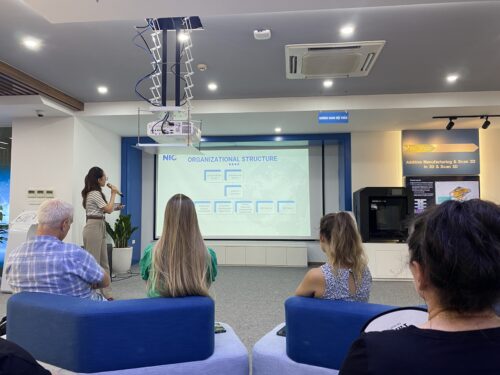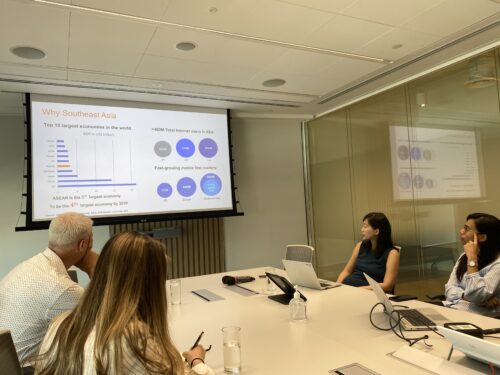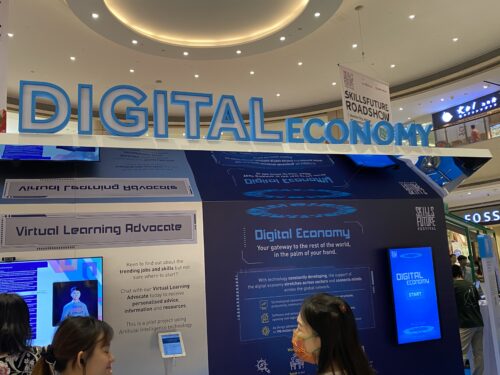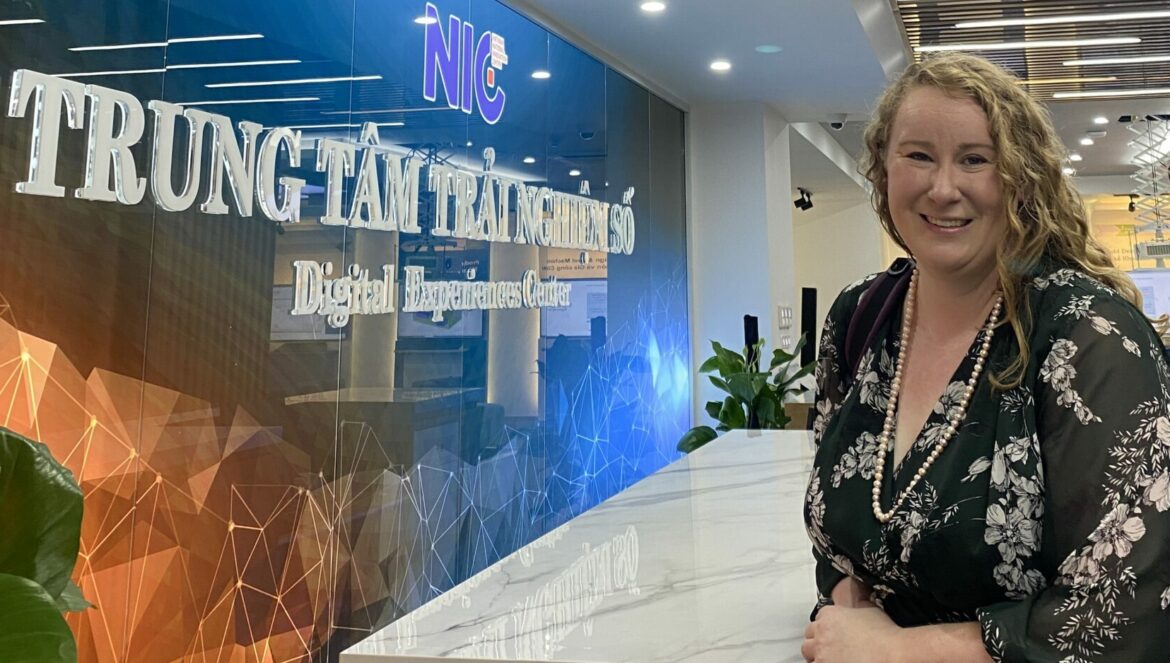Table of Contents
Southeast Asia is the fastest-growing region in the world with 675 million plus individuals, an expanding middle class, and rapid digitization. This region, east of the Indian subcontinent and south of China, has hundreds of languages and diverse cultures and is transforming digitally.
I had the opportunity to visit parts of Southeast Asia, Singapore, and Vietnam as part of a business delegation with the World Trade Center Utah. While there, I met many from the edtech industry and learned more about what is happening in that space. Here are some of my takeaways from the trip.
Southeast Asia is watching the United States…and China
A common theme when attending panels or having discussions was the tension between the United States and China and its impact on the region. When visiting the U.S. Embassy in Singapore, a State Department official shared that America is the largest investor in Singapore, but the country is also about 74% ethnic Chinese. This rich city-state straddles the line with relations between both countries and increasingly strives for relevance with its small size.
 Southeast Asian countries are also watching the Taiwan Strait and would be deeply affected by a war between Taiwan and China, which would bring in other countries like the United States. The Rhodium Group, an independent research provider, estimates “well over two trillion dollars in economic activity at risk, even before factoring in the impact from international sanctions or a military response.” Much of Southeast Asia, Vietnam, the Philippines, Malaysia and Singapore heavily rely on Taiwan’s semiconductors and electronics. China is also a big part of the region’s supply chain, with Vietnam and Cambodia being major export partners.
Southeast Asian countries are also watching the Taiwan Strait and would be deeply affected by a war between Taiwan and China, which would bring in other countries like the United States. The Rhodium Group, an independent research provider, estimates “well over two trillion dollars in economic activity at risk, even before factoring in the impact from international sanctions or a military response.” Much of Southeast Asia, Vietnam, the Philippines, Malaysia and Singapore heavily rely on Taiwan’s semiconductors and electronics. China is also a big part of the region’s supply chain, with Vietnam and Cambodia being major export partners.
Self-reliance and Autonomy
As former Singaporean minister Lee Kuan Yew said, “Singapore must become a poisonous shrimp,” and the government has consistently pushed for self-reliance. In Singapore, there’s been a significant investment into homegrown businesses. An example is BLOCK71, which is part of the National University of Singapore. It’s an incubator program, with many ed tech startups, that works with the university, government entities and mentors to expand Singaporean based businesses outside the country. There is one even in the United States in Silicon Valley.
Vietnam also embodied this spirit of autonomy. China is their northern neighbor, former occupier, and big trading partner. But they are looking to be new trading partners, and they, like other Southeast Asian nations, are welcoming American businesses who feel leery of setting up shop in China due to the economic sanctions and crackdowns there.
Mobile First
 According to EduSpaze, an ed tech venture and research firm I visited with, over 90% of people in Southeast Asia are “mobile first.” While some apps and productivity software are the same, much of the digital ecosystem differs from the U.S. such as the easy-to-use Grab which I used to navigate, hail a cab, order food and even get laundry done. Social media has also permeated throughout the region. According to the World Economic Forum, Malaysia for example has the highest social media penetration rate in the world (81%) , with high rates for Singapore, the Philippines and Indonesia.
According to EduSpaze, an ed tech venture and research firm I visited with, over 90% of people in Southeast Asia are “mobile first.” While some apps and productivity software are the same, much of the digital ecosystem differs from the U.S. such as the easy-to-use Grab which I used to navigate, hail a cab, order food and even get laundry done. Social media has also permeated throughout the region. According to the World Economic Forum, Malaysia for example has the highest social media penetration rate in the world (81%) , with high rates for Singapore, the Philippines and Indonesia.
Investments in Southeast Asia Education
Parents in Southeast Asia invest deeply in their children’s education. EduSpaze estimated about 30% of a household’s income is in the child’s education, with some countries, like Vietnam, spending 40%. This chunk of household income goes into vocational training, online education, English learning, afterschool programs, tutors, private schools and more.
Governments are also investing in education. The Ministry of Education in Singapore created a national ed tech plan in 2020 that has goals for every student to have an AI learning assistant. The Ministry of Education in Vietnam, who I met with and presented to about digital citizenship, has been engaging in STEM education and digital skills upskilling in K-12 for years now.
Digital Skills in Southeast Asia
 The private sector, too, is investing in Southeast Asia. FPT Company, the largest tech company in Vietnam, created FPT University in 2006 to help build digital skills in the country as well. Vietnam, as well as other countries in the region, are also working to develop digital infrastructure, like cloud computing, and an educated workforce is a key part of that structure.
The private sector, too, is investing in Southeast Asia. FPT Company, the largest tech company in Vietnam, created FPT University in 2006 to help build digital skills in the country as well. Vietnam, as well as other countries in the region, are also working to develop digital infrastructure, like cloud computing, and an educated workforce is a key part of that structure.
We have been experiencing this digital transformation in the United States for years, but it is newer and faster out in Southeast Asia. This rapid growth can bring downsides, issues with infrastructure, energy, and online safety issues, but it also brings opportunities. One thing that impressed me on my visit was the energy, excitement, and optimism about the changes. Women were leading and being more involved in technology, and governments were investing more in women’s literacy and education. There was more outside money and chances for a job that requires less traditional physical labor. And more people are being connected to the digital economy and banking.
As someone who teaches and advocates for digital citizenship, I am seeing a rising new generation of digital citizens who are more connected to the outside world. Like others I met, I’m excited and optimistic too.
